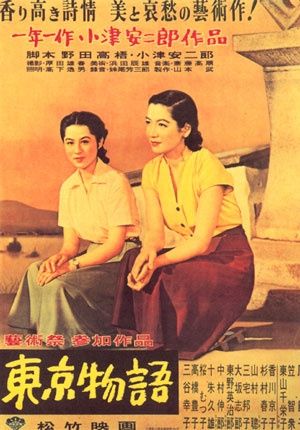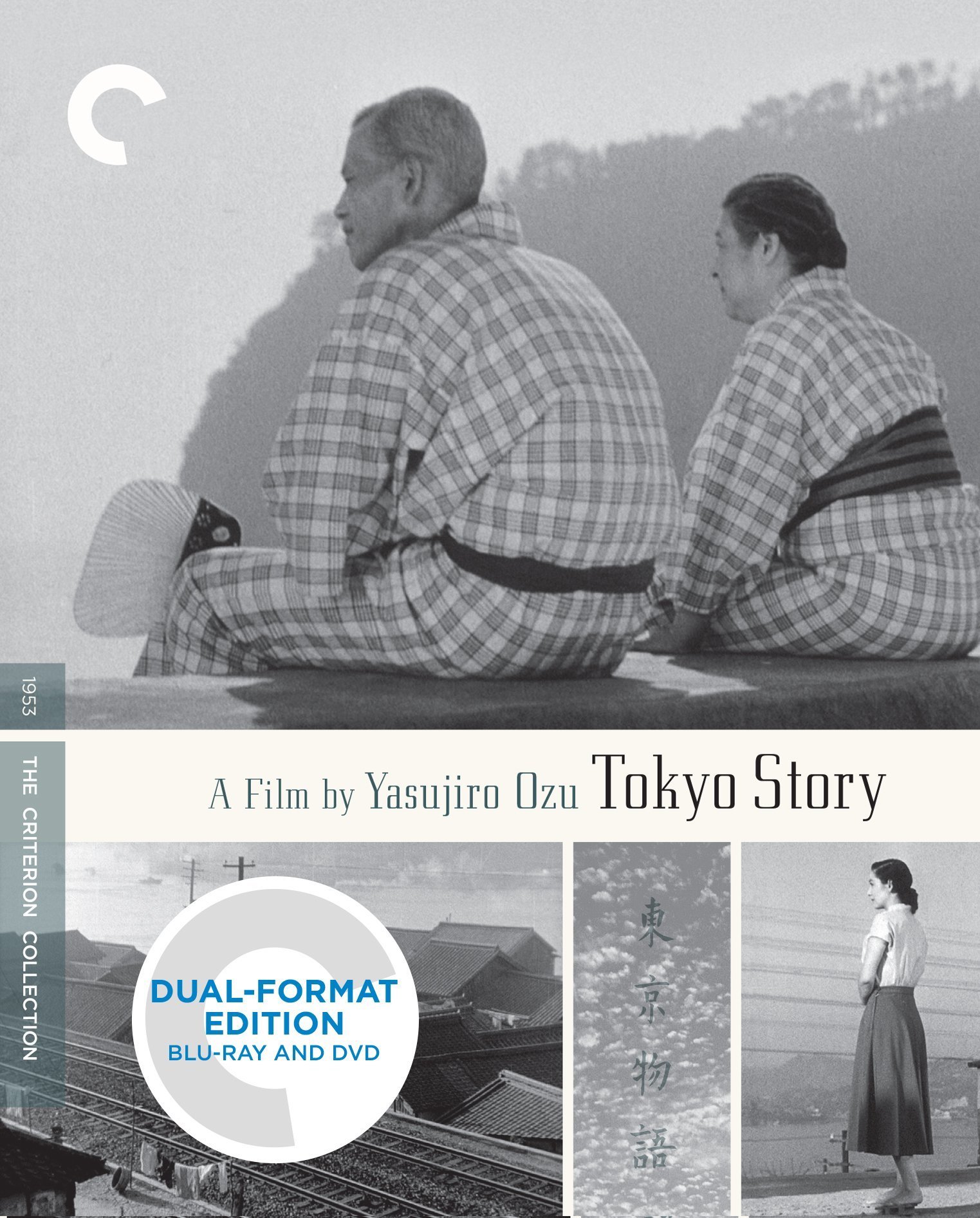Ozu’s 1953 film, Tokyo Story, is one of the very few films that I have ever watched that made me want to telephone my mother as soon as it was over. The movie follows an aging mother and father as they take a trip to Tokyo to visit their family, which is made up of three of their very busy children: a doctor, a hairdresser, and a businessman. As well they visit their daughter-in-law who was widowed during the war. The three natural children do what they can to share the burden of the visiting relatives and try their best to make their trip comfortable and entertaining.
Throughout the story the parents are coming to terms with the fact that the children they raised no longer have much time to spend with them. At one point the children pool their resources to pay for their parents to take a vacation to the hot springs, on top of their trip to the city. The only people who make time to be with them are the daughter-in-law and their youngest, a teacher, who lives back at their home. Tragedy strikes the family and the children are forced to forestall their busy lives and make time.
I am not sure how I should feel about the fact that some things never change, that life is the same then as it is now. All too often it seems that aging family seems to be a burden when it really should not be. Ozu tells a pertinent story about remembering who we are and how we got here. Something very peculiar about the film is that Tokyo Story is part of an unofficial Noriko trilogy. This film, with Late Spring and Early Summer, has characters and actors with the same names playing different parts. Hearing the name Noriko called out and seeing the same face turn at attention is strange.
This style of storytelling does add a different level of emotion to the viewer depending on the order that the films are viewed. I already knew Noriko as the dutiful daughter that did not want to get married on Late Spring specifically because she did not want her father to be left alone. In Tokyo Story Noriko is the dutiful daughter-in-law who does not have any reservations about taking time off of work to spend time with her husband’s family. Familial drama aside, it is nice to enjoy an innocent family film, especially one so well made. I am glad that this project has led me down to Ozu.
I watched the Criterion Collection Blu-ray, and the transfer was beautiful.
Trailer
Important Links

